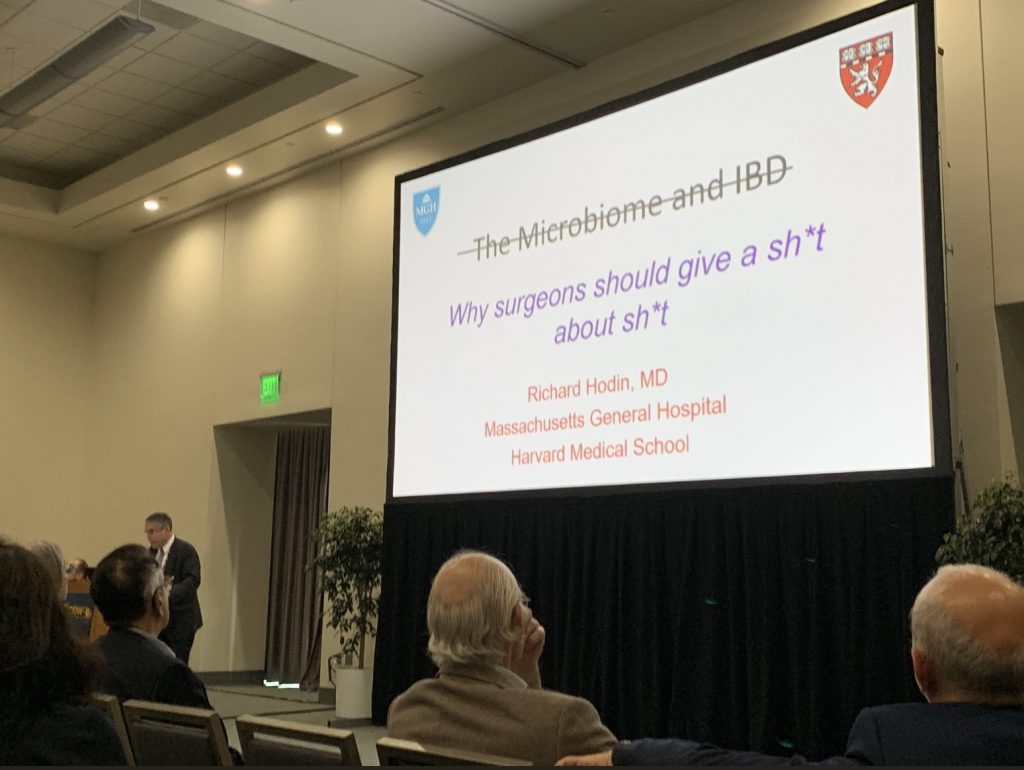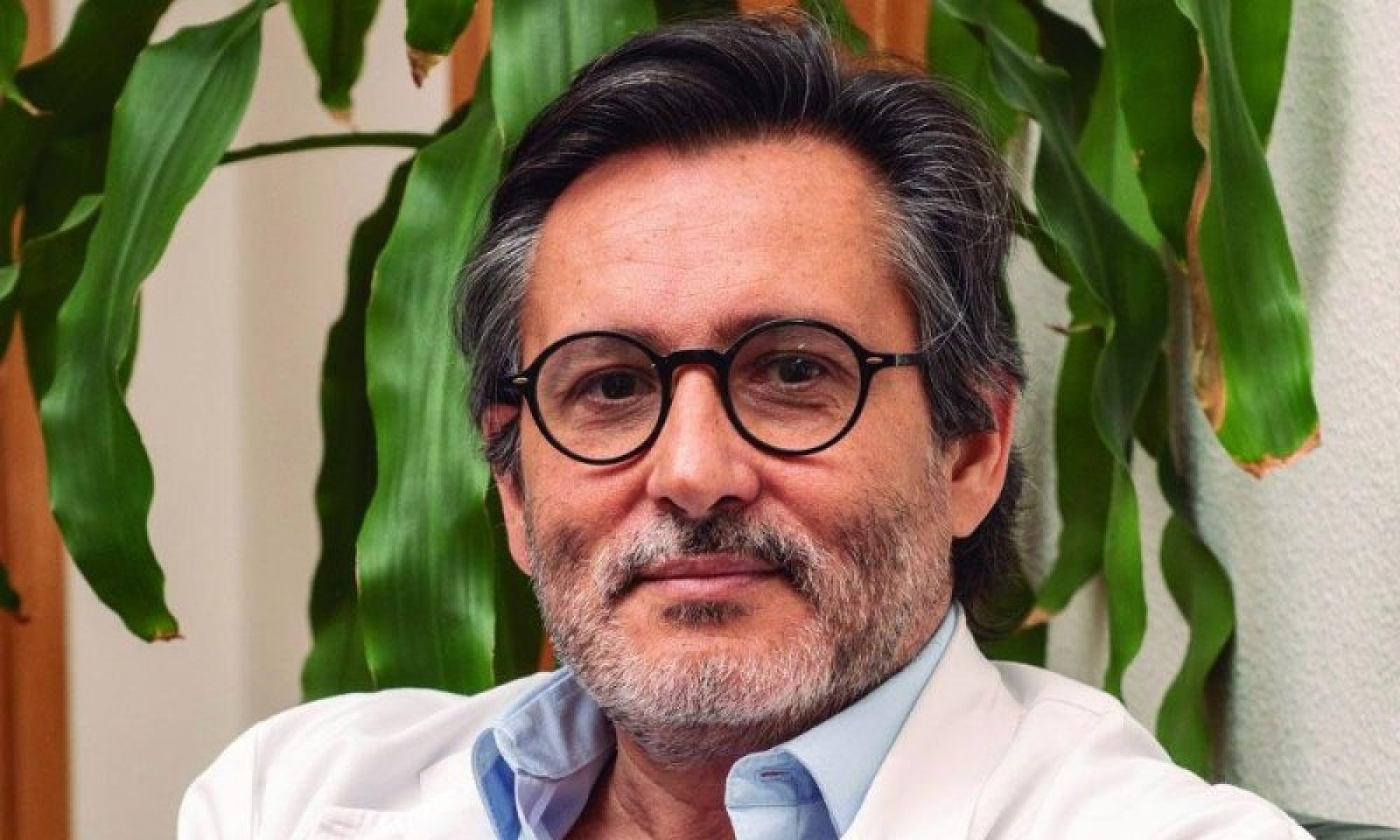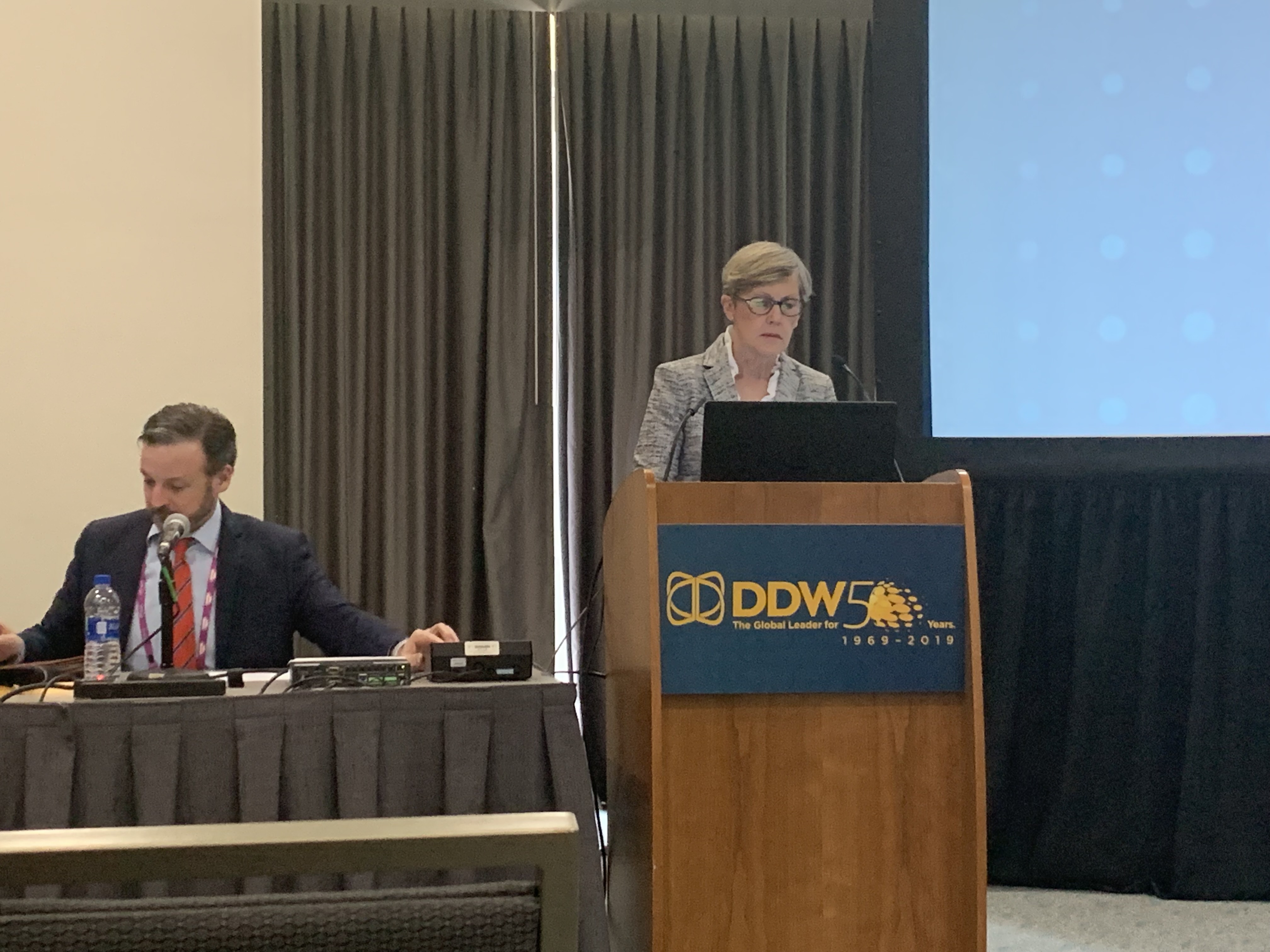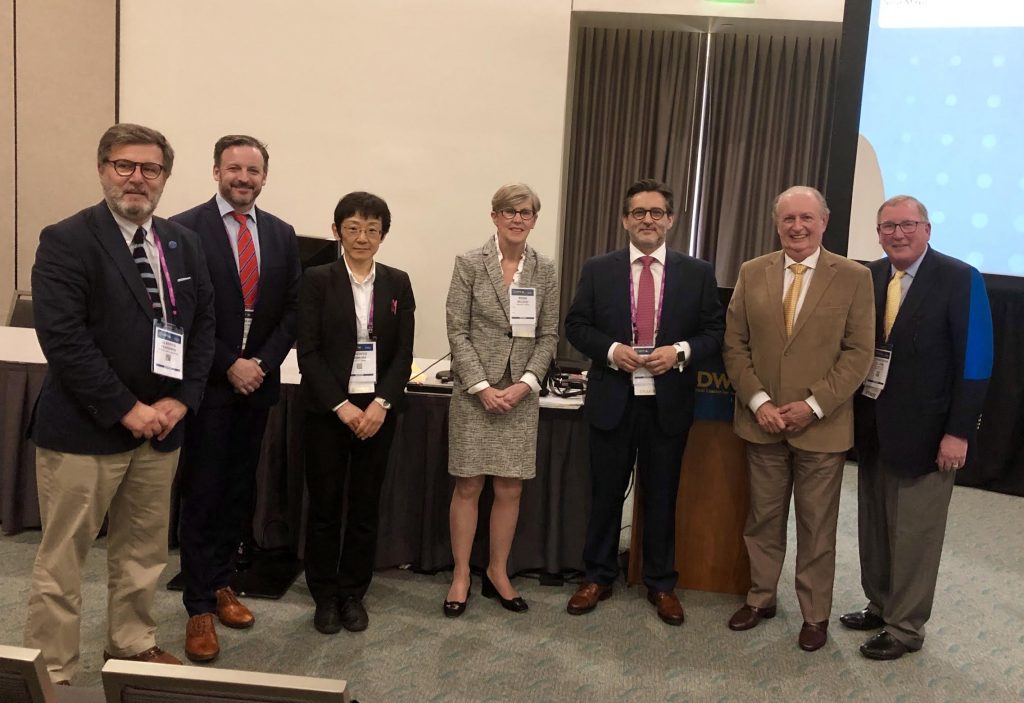Today has been an intense and long day at #SSAT19: plenary sessions, Foundation awards, presidential address, editorial board meeting, etc.
However, these are the things that come to my mind when I try to recall what I’ve learnt:
The SSAT must be transformed to meet new challenges and generate new opportunities for academic surgeons.
Obesity and bacteria are clearly linked. In mice.
IBD is linked to microbiota.
Bacteria have refined their genetic code for longer than humans. They may outsmart us.
Chemotherapy toxicity may be influenced by intestinal bacteria.
Microbiome may play a role in pancreatic cancer.
John Alverdy is THE expert surgeon in microbiome.
We must solve complex problems because the easy ones are already fixed (Marc Nivet)
Residents and younger surgeons include their Twitter handles in their presentations.
In order to achieve transformation one must challenge his/her biases, get comfortable with being uncomfortable, interrupt the usual, and be curious.



